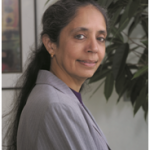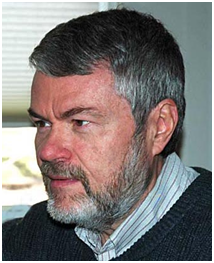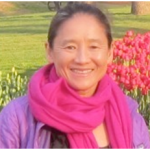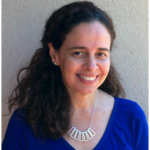Humanitarian Technology Innovation in Silicon Valley: The Rise of Social Enterprise
– Co-organized by IEEE Santa Clara Valley Section – Consumer Electronics Society
Date: Monday, October 13 2014
Time: 10:30 am – 12:30 pm
Location: San Jose Ballroom (first floor)
Cost: $45/Person to cover food and coffee break, and for attendance to GHTC sessions on Monday afternoon
Registration required. This is a non-GHTC event; however registration includes lunch and access to GHTC Monday afternoon Sessions H1-H5 and Closing Plenary.
Moderator: Professor Radha Basu, Director, Frugal Innovation Lab, Santa Clara University
Overview:
The panel discussion will introduce some of the humanitarian technology innovations that are being developed at the Silicon Valley in Northern California, the birthplace of numerous high tech companies. This would provide an opportunity for various institutes and organizations to share knowledge and experience based on the humanitarian technology projects that they have developed, and to exchange ideas and visions on the future directions of the technology development.
Some of the questions to be addressed by the panel include:
1) What are the most urgent and critical humanitarian problems to be solved?
2) Can the state-of-the-art product and technology be extended and applied to humanitarian applications?
3) What are the key technologies for humanitarian applications that have been validated which are yet to be productized?
4) What could be the process of product realization and commercialization of new technology that can be applied to humanitarian applications?
5) What would be the essential factors for the projects or products to be scalable and sustainable?
6) What could be the biggest roadblocks to the successful realization and deployment of humanitarian technologies?
7) Could social enterprises solve humanitarian problems?
Speakers:
- Professor Radha Basu – Moderator
Director, Frugal Innovation Lab, Santa Clara University
Radha Ramaswami Basu has over 35 years of experience in technology management. She is widely recognized as a leading woman entrepreneur in hi-tech companies and as a pioneer in the Indian software business. Radha spent twenty years at Hewlett Packard in engineering and general management. In 1985 she founded the company’s operations in India and set up the first software center of any multinational in Bangalore. She then became General Manager of Hewlett Packard Electronic Business Software Division, which she grew to a $1.2 billion global business.
Radha held the position of Chairman & CEO at Support.com from July 1999 to May 2006. She led the company through initial and secondary public offerings in 2000 and 2003, and built it into a worldwide market leader in support automation software.
In 2006, Radha and her husband Dipak created the Anudip Foundation, a social enterprise in India with the mission of generating livelihood opportunities for marginalized people through market aligned skills training in information technology and micro entrepreneurship. Anudip has impacted more than 22,000 rural women and youth to obtain livelihoods in the new economy. In 2011, Radha founded and is CEO of iMerit Inc., a technology services company www.iMerit.net that has pioneered the ‘smartsourcing model’ with Anudip trained graduates working on web enabled IT services for global customers.
Radha is currently serving as Director, Frugal Innovation Lab at Santa Clara University and sits on the boards of NetHope, Santa Clara University CSTS and Jhumki Basu Foundation. Radha has won numerous awards including Excelsior Leadership, Top25 Women of the Web, CEO of the Year 2000, Leader of the Millennium, and has been profiled in the Wall Street Journal, Business Week, Upside Magazine and Economic Times. She has featured as a guest speaker at Oxford University, Wharton, MIT Sloan, Stanford Business School, Santa Clara University, and the Forbes Executive Summit.
- Erica Weirich, MA, MD
Founder & Director, Global Health Research Foundation
Dr. Erica Weirich is the founder and director of Global Health Research Foundation, a practicing physician in Los Altos, and Adjunct Professor of Medicine at Stanford University School of Medicine.
Abstract:
Dr. Weirich will discuss the Global Health Research Foundation (http://www.ghrf.org), which combines health development and respect for culture with Silicon Valley technology and resources. GHRF deploys information technology tools for rapid outcomes access and data utilization, to support sustainable health development in medically underserved areas. GHRF solutions have improved efforts to identify outbreaks, and treat and control disease. Using medical and technology assessments, and tools and business strategies for rapid cycle testing, GHRF is working to ensure that functioning solutions are made sustainable, scalable and transferable.
- Orin Laney, PE
CEO, Atwood Research
Orin E. Laney is the CEO of Atwood Research, a consultancy specializing in electronic development and regulatory compliance. He is a senior IEEE member, holds MBA and MSEE degrees, and is a registered Professional Engineer in the state of California. As an author and public speaker he has visited many college campuses on behalf of the IEEE to lecture on professional and career matters. Originally a native of the Washington, D.C. area, Mr. Laney now makes his living in Silicon Valley.
Title of talk: “Where are the philosophers? Where are the systems engineers?
Abstract:
This year’s Global Humanitarian Technology Conference, as in past years, features information on projects scattered across the technology spectrum. Glaring in omission is discussion of how these pieces fit together, or should fit together, trends and the meaning behind them, and consideration of the proper staging sequences for inserting technology into the lives of those who need it. As we look at major humanitarian crises currently in the news, we read of wars and refugees, droughts and economic stress, and the ravages of the Ebola virus, currently on track for deaths in the hundreds of thousands. What priorities do these crises suggest? What is the proper division between small scale efforts and large ones, and between those that most naturally are those of the public or private sectors? We need the larger conversations that provide the “view from 10,000 meters”.
- My T. Le, MEng, PhD
Founding Director, Stanford Gap for Good
Lecturer, Electrical Engineering Department, Stanford University
Board of Director, Global Health Research FoundationMy Le received her BS in Electrical Engineering from UC Davis in 1983. Le proceeded to obtain MS and PhD degrees in Electrical Engineering from UC Berkeley. Her thesis was in the area of integrated circuit design and computer architecture and she is first author on several publications. Le later joined a start-up company, Granite Systems, and continued to work there after the company was acquired by Cisco Systems. Dr. Le’s research and industry efforts have been at the cutting edge of Internet technology and have resulted in major advances and revenue. At Cisco, Le gained very extensive design/development experience in networking components and experience with both start-up environment and large company politics. Le is currently a Lecturer of EE at Stanford and has taught several courses in the EE department. She is also the founding director of the Stanford Gap For Good Program.
Abstract:
Stanford EE46 – Engineering For Good – is a class where students examine real-world problems, learn the skills needed to solve them and are expected to produce real results.
- Silvia Figueria, PhD
Associate Professor, Computer Engineering, Santa Clara University
Silvia Figueira is an Associate Professor of Computer Engineering at Santa Clara University. She received her Ph.D. degree in Computer Science from the University of California, San Diego. Her research is in the area of performance evaluation and prediction, recently with a focus on energy efficiency. She is a member of the SCU Frugal Innovation Lab, in which she leads the Mobile Lab and advises students working on mobile applications for underserved communities and emerging markets.
Title of Talk: Empowering the Underserved One App at a Time
Abstract:
Silvia Figueira will discuss how cellular phones and wireless communication are empowering people in underserved communities across the globe. By enabling the dissemination of information to remote locations, they are making a huge impact on education and health. By enabling small businesses to scale, they are empowering people, particularly women, to contribute to their communities by creating jobs and improving livelihood. By interfacing to and/or substituting expensive medical equipment, they are enabling clinics in remote locations to be equipped with affordable diagnostic and treatment devices, which consequently improves health across the board. All this and much more can be accomplished by developing and helping to deploy web systems and apps, which her group at Santa Clara University has been doing in collaboration with local organizations and social enterprises in emerging markets.









